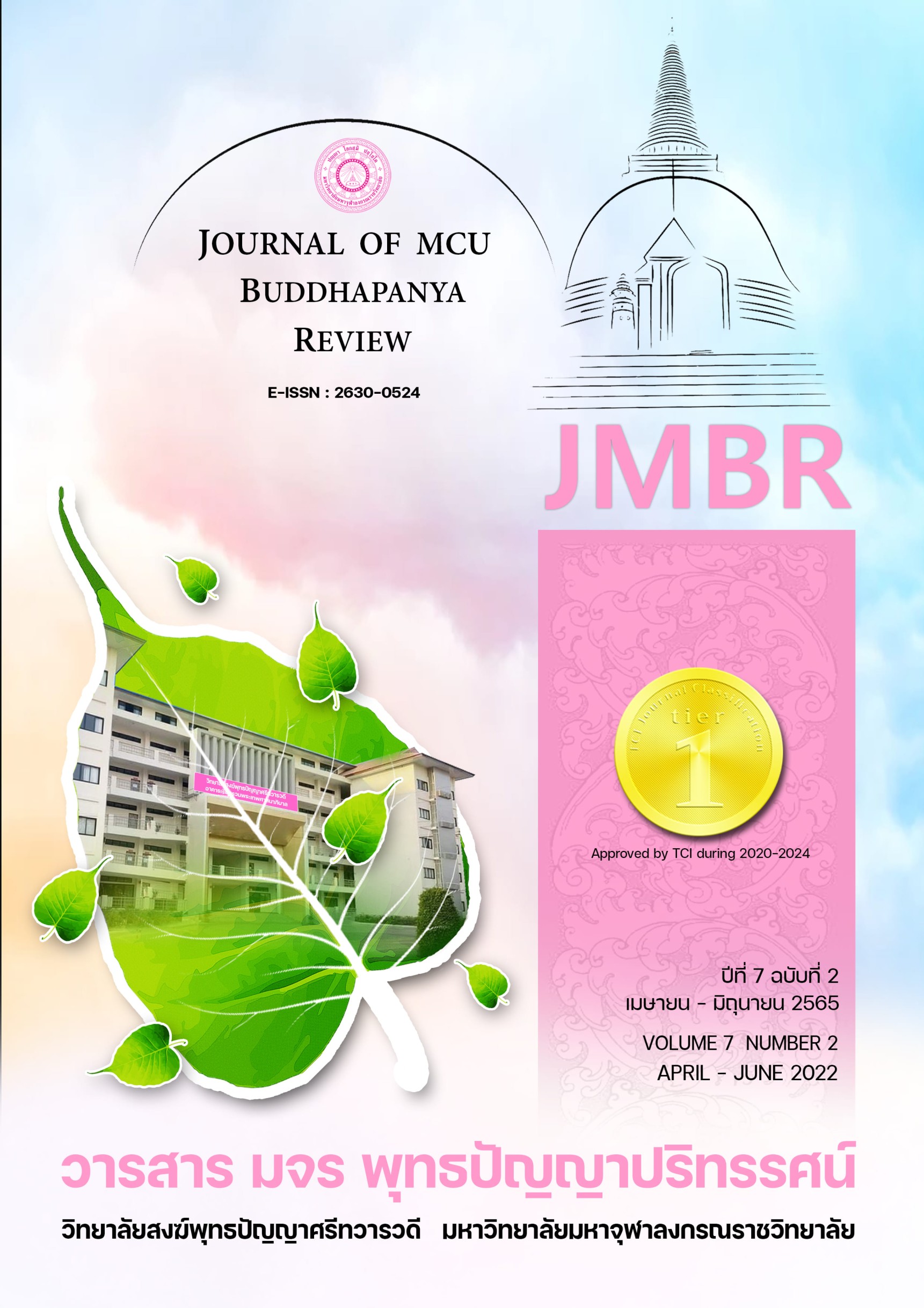การพัฒนาคุณภาพชีวิตผู้สูงอายุ เปลี่ยนภาระเป็นพลัง ร่วมพัฒนาสังคม
คำสำคัญ:
การพัฒนา, คุณภาพชีวิต, ผู้สูงอายุบทคัดย่อ
การวิจัยครั้งนี้มีวัตถุประสงค์ 1) เพื่อศึกษาสภาพปัญหาการพัฒนาคุณภาพชีวิตผู้สูงอายุ เปลี่ยนภาระเป็นพลัง ร่วมพัฒนาสังคม 2) เพื่อศึกษาการดำเนินการพัฒนาคุณภาพชีวิตผู้สูงอายุ เปลี่ยนภาระเป็นพลัง ร่วมพัฒนาสังคม และ 3) เพื่อศึกษาแนวทางการพัฒนาคุณภาพชีวิตผู้สูงอายุ เปลี่ยนภาระเป็นพลัง ร่วมพัฒนาสังคม รูปแบบการวิจัยเป็นการวิจัยเชิงคุณภาพ เก็บข้อมูลจากผู้บริหารในระดับนโยบายที่ทำงานเกี่ยวข้องกับผู้สูงอายุในภาครัฐ เจ้าหน้าที่หน่วยงานที่เกี่ยวข้อง และตัวแทนผู้สูงอายุ จำนวน 20 คน การวิจัยครั้งนี้ ใช้แบบสัมภาษณ์ชนิดมีโครงสร้าง โดยนำข้อมูลที่จัดระเบียบแล้วมาเรียบเรียง ตีความ ตามหลักตรรกะและวิเคราะห์เป็นข้อสรุปแบบพรรณนาความ
ผลการวิจัยพบว่า (1) สภาพปัญหาการพัฒนาคุณภาพชีวิตผู้สูงอายุ เปลี่ยนภาระเป็นพลัง ร่วมพัฒนาสังคม พบว่า การกำหนดนโยบายไม่ตอบสนองปัญหา สวัสดิการสังคมไม่เพียงพอ และไม่ครอบคลุม ผู้สูงอายุบางส่วนคาดหวังพึ่งรัฐมากเกินไป ขาดแคลนงบประมาณ เครื่องมือวัสดุอุปกรณ์ต่าง ๆ บุคลากร และ
การจัดการที่เหมาะสม (2) การดำเนินการพัฒนาคุณภาพชีวิตผู้สูงอายุ เปลี่ยนภาระเป็นพลัง ร่วมพัฒนาสังคม มีการดำเนินการใน 6 ด้านสำคัญ คือ 1) การสร้างระบบคุ้มครองและสวัสดิการผู้สูงอายุ 2) การส่งเสริมการมีงานทำและมีรายได้ของผู้สูงอายุ 3) การพัฒนาศักยภาพของผู้สูงอายุ (ด้านการงานและการศึกษา) 4) ระบบสุขภาพเพื่อรองรับสังคมสูงอายุ 5) สภาพแวดล้อมที่เอื้ออำนวย และ 6) การส่งเสริมการรวมกลุ่มและสร้าง
ความแข็งแรงขององค์กรผู้สูงอายุ และ 3) เพื่อศึกษาแนวทางการพัฒนาคุณภาพชีวิตผู้สูงอายุ เปลี่ยนภาระเป็นพลัง ร่วมพัฒนาสังคม พบว่า การส่งเสริมสถาบันครอบครัว และบทบาทของชุมชน ทำงานแบบบูรณาการทุก
ภาคส่วน สร้างโอกาสการเข้าถึงบริการของรัฐ ส่งเสริมคุณภาพชีวิต ลดความเหลื่อมล้ำทางสังคม สนับสนุนให้ผู้สูงอายุมีงานทำ มีกิจกรรมทางสังคมที่เหมาะสม
เอกสารอ้างอิง
Department of Mental Health. (2020).The stepping stone of Thailand towards the 'elderly society' completely. Nonthaburi: Department of Mental Health.
Department of Mental Health. (2020). 93 days to "old people" society in 5 provinces? The oldest people - the least. Nonthaburi: Department of Mental Health.
Network capacity building and development group Division for the Promotion of Elderly Potential. (2019). The current aging society and economy in Thailand. Bangkok: Network Capacity Building and Development Group Division for the Promotion of Elderly Potential.
National Board of Elders. (2010). National Plan for the Elderly, Vol. 2 (2002-2021), Revised Edition No. 1, 2009. Bangkok: Thepphenwanis.
Trairat Jarutat. (2022). Coping with the "aging society". Prepare to cover 4 dimensions. Retrieved on January 15, 2021, from https://www.bangkokbiznews.com/social/982483.
Thanaporn Promsuwan. (2018). Coping with an aging society. Bangkok: Department of Elderly Affairs.
Norinee Tawa and Pawit Chaivisit. (2016). Environment and housing management for the elderly in Mueang District, Nakhon Si Thammarat Province. Association of Private Higher Education Institutions of Thailand under the Royal Patronage of HRH Princess Maha Chakri Sirindhorn Her Royal Highness Princess Maha Chakri Sirindhorn, 5(1), 31-39.
Piyaluck Phothiwan and Kittikorn Bamrungboon. (2015). Guidelines for providing social welfare for the elderly in Maha Sarakham Municipality, Muang District, Maha Sarakham Province. Research report. Maha Sarakham Rajabhat University.
Phawadee Thakrairat. (2015). Developing the Elder's Potential to Increase Sustainable Economic and Social Value in Sisaket Province area. Academic journal Buriram Rajabhat University, 7(1), 39-61.
Wiphan Prachuapmoh (2020). Chulalongkorn University signed a cooperation agreement. "Turn retirement into strength". Retrieved 19 June 2021, from https://www.chula.ac.th/news/45158/
Wiraphan Wirotarat et al. (2014). Developing a health service system for the elderly who depend on others. Journal of the Council of Nursing, 29 (3), 104-115.
Siliya Sukanan. (2019). Strategies to promote the work of the Thai elderly. Bangkok: Office of the Permanent Secretary Social development and human security.
Srinsuey Raweesangsoon. (2016). Guidelines for improving the quality of care for the elderly in Bangkok to support the aging society. Bangkok: National Defense College.
Kasikorn Research Center. (2021). Elderly Society...Perfect Are Thai people ready? Retrieved June 30, 2021, from https://www.kasikornresearch.com/th/analysis/k-social- media/Pages/Aging-society-FB-30-04-21.aspx.
Sudarat Sudsomboon. (2014). Social Welfare of the Elderly in Thailand. Southern Journal of Technology, 7(1), 73-82.
Supang Chantavanich. (1999) Qualitative research methods. Bangkok: Chulalongkorn University Press.
Anchirana Chantarapitaka. (2017). Driving Public Policy for the Elderly to the Action of the Elderly Club in Bangkok. Doctor of Public Administration degree. Nakhon Pathom: Mahidol University.
Abraham, J. D. and Hansson, R.O. (1995) Successful Aging at Work: An Applied Study of Selection, Optimization, and Compensation through Impression Management.
The Journals of Gerontology, 50B, 94-103.
Barrow, G. M., & Smith, P. A. (1979). Aging and Society. Minnesota: West.
Brown, M., & Lewis, H. L. (1976). Hospital Management System: Multi-Unit Organization and Delivery of Health Care. Germantown, MD: Aspenr.
Friedlander, W. A., & Apte, R. Z. (1980). Introduction to Social Welfare. Englewood Cliffs, New Jersey: Prentice Hall.
Lawton, M. P. (1983). Environment and Other Determinants of Well-Being in Older People. The Gerontologist, 23(4), 349-357.
Matteson, M .A., & McConnell, E.S. (1988). Deontological Nursing: Concepts and Practice. Philadelphia: W.B. Saunders.
Zhan, L. (1992). Quality Of Life: Conceptual and Measurement Issues. Journal of Advanced Nursing, 17,795-800.
ดาวน์โหลด
เผยแพร่แล้ว
รูปแบบการอ้างอิง
ฉบับ
ประเภทบทความ
สัญญาอนุญาต
ลิขสิทธิ์ (c) 2022 วารสาร มจร พุทธปัญญาปริทรรศน์

อนุญาตภายใต้เงื่อนไข Creative Commons Attribution-NonCommercial-NoDerivatives 4.0 International License.



